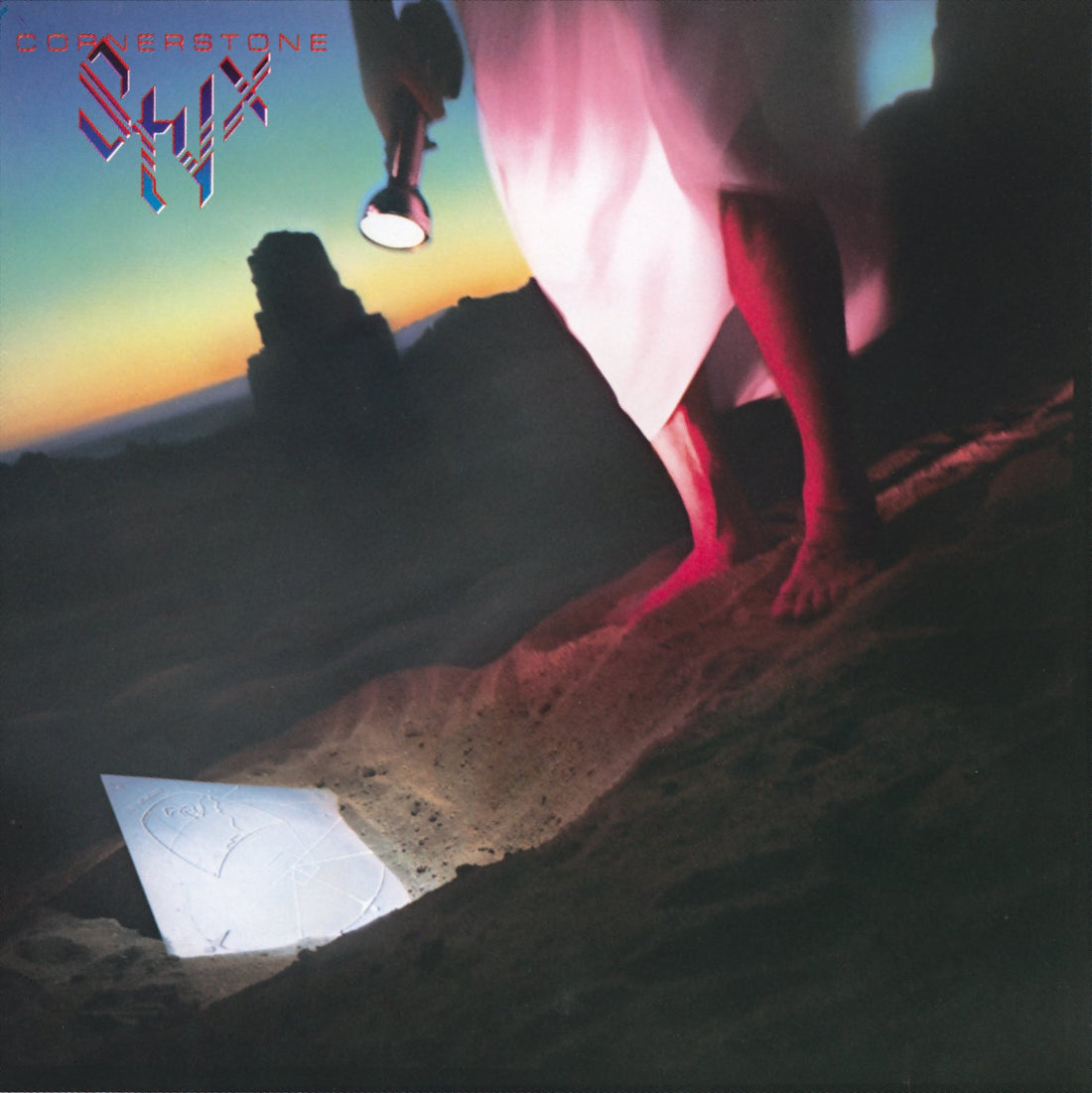
Cornerstone Turns 41 Today!
Share

by Mike Mettler, resident Styxologist
Cornerstone, Styx’s ninth studio album, was released 41 years ago today by A&M Records on October 19, 1979. Cornerstone was the band’s third triple-platinum-selling album in a row — cementing Styx as the first band ever to have achieved that vaunted sales feat (with their fourth one to follow just two years later) — and it spawned their first #1 single, “Babe.” The intimate, Dennis DeYoung-penned ballad reached the pinnacle of the Billboard Hot 100 singles chart for two weeks in December 1979 (specifically, on the charts dated December 8 and December 15). The album itself peaked at #2 on Billboard’s Top 200 Albums chart.

Cornerstone contains a number of key tracks in the Styx oeuvre. Guitarist/vocalist Tommy Shaw’s mandolin-driven “Boat on the River” is, in fact, the band’s biggest hit internationally, having topped the charts in Switzerland and reaching the Top 5 in countries like Germany, Austria, and the Netherlands — not to mention its becoming a key track on Sing for the Day!, his live solo release from June 2018 on which he was backed by the Contemporary Youth Orchestra. “Boat on the River” also happens to be the band’s most-covered track, with many of those cover versions having been done in languages other than English. “It still amazes me how much impact that song has had on people over the years, and how far and wide it has reached all over the globe,” Tommy admits.
For “Boat on the River,” original bassist Chuck Panozzo tried something new by playing a bowed, stand-up double bass. “It was something I hadn’t done before in the studio,” Chuck recounts. “Some people were skeptical about it, but that wasn’t going to stop me from trying it. I thought it was the right thing to do for the song, and I think it worked out perfectly.”

The album’s vibrant lead track, Tommy’s ever-uplifting “Lights,” has since become a staple in the back half of Styx’s extended live sets, and it was a standing favorite for Gary Loizzo, the band’s longtime live engineer and studio co-producer who passed away in January 2016. As it’s been performed in recent years, “Lights” currently features an original percussion intro written and performed by drummer Todd Sucherman, Shaw on acoustic guitar throughout the entire song, and co-founding guitarist/vocalist James “JY” Young replicating on his electric guitar the Ed Tossing-arranged middle horn section that’s heard on the studio version.
Cornerstone was recorded at Loizzo’s own Pumpkin Studios in Oak Lawn, Illinois. “For me, Cornerstone was one of those albums that went together very well,” Loizzo told me in 2015. “I was very hard on Johnny [i.e., John Panozzo, Styx’s original drummer, who passed away in July 1996] because I made him play nothing but foot, snare, and kick on a couple of tracks, and then he’d have to go and overdub toms and other stuff. Sometimes, the sound itself isn’t the most important thing — you’ve also gotta get the feel.”
The album was named by JY, as they often are. (He also named Man of Miracles and Equinox.) Cornerstone’s stunning artwork, which features a barn-door opening down the middle of the back cover that opens up to printed lyrics on both interior half-sides and a shiny, futuristic silver LP sleeve, was designed by Mick Haggerty. (Unfortunately, some of the latter-day LP reissues do not include the barn-door option, such as the version that’s included in The A&M Albums – 1975-1984 vinyl box set.)

While most of the attention given to Cornerstone continues to spotlight Side 1, lyrics from key Side 2 tracks like Tommy’s album-closer, “Love in the Midnight,” have occasionally been sung by its author before he launches into other songs acoustically onstage. The hard-charging “Borrowed Time” (the album’s second single, which reached #64 on the charts) has been discussed only in passing as a song that might be revisited live someday. And, when I occasionally suggest to JY that I’d love to hear “Eddie” find its way into the set — somewhat of a ritual request of mine, whenever we’re on the road together for an extended period of time — he will often reply something along the lines of, “You might have to wait on that” before adding, “but I’d keep it in the original key.” (I think the message is ever so loud and clear, indeed. . .)
Cornerstone remains a strong pillar in Styx’s recorded legacy, and it’s an album worth revisiting via its finely remastered vinyl form. And all roads lead to tranquility base. . .


